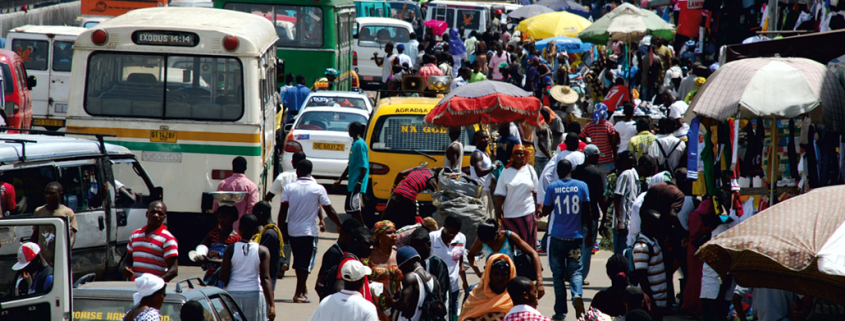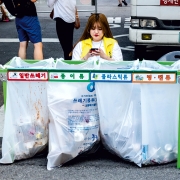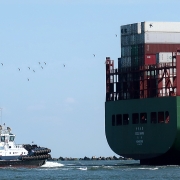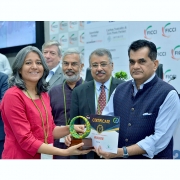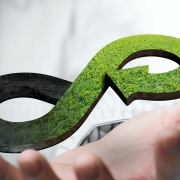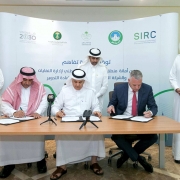Ghana and its Waste Management
The Republic of Ghana is on the road to circular economy.
In 2021, the West African country had more than eight million households. The daily produced quantity of solid waste was estimated at nearly 12,710 tons. Only ten percent of this amount was collected and treated appropriately.
As of 2021, over 3.1 million households disposed of solid waste at public dumps or open spaces, global data and business intelligence platform Statista informed in February 2023. “Other households threw away solid waste by burning them or sending them to central collection containers and compaction trucks. These were the primary methods by which solid waste was disposed of in the country.”
But the situation is changing. Ghana has begun policy, institutional and regulatory frameworks for sound management of solid waste, Dr. Kwaku Afriyie, Minister of Environment, Science, Technology and Innovation, and Angela Lusigi, UNDP (United Nations Development Programme) Resident Representative in Ghana, reported on the organization’s homepage in October 2022. The republic had developed a solid waste management strategy to set the country “on a path towards progressive, high-quality, cost-effective and sustainable waste management services which deliver environmental, public health, and economic benefits to all”. That would be a step in the right direction in view of the scale and speed of urbanization.
“Institutional governance mechanisms support collaboration to address waste management challenges,” the authors wrote. “At the national level, the Ghana National Plastics Action Partnership has developed the National Action Roadmap to guide ways to manage plastics across the product lifecycle.” They also informed about the Waste Recovery Platform (https://ghanawasteplatform.org) established by UNDP together with those in the waste management value chain to promote waste recovery in a larger circular economy. “In the spirit of leaving no one behind, the platform convenes and integrates the interventions of the government, private sector, and waste entrepreneurs as well as waste pickers, the majority of whom are women and young people. The platform is working together with partners to unblock challenges in the sector by supporting innovation and entrepreneurship.”
Extended Producer Responsibility
The Ghana Ministry of Environment, Science, Technology and Innovation (MESTI) is preparing an Extended Producer Responsibility (EPR) framework where importers and local manufacturers share the management and cost burden for end-of-life products. “In this way, funds will be generated to effectively manage waste in the cities,” Dr. Kwaku Afriyie and Angela Lusigi pointed out. “Through public-private partnerships, innovators in the sector are already being supported through grants and loans to develop home-grown solutions to efficiently manage waste.”
Soon, the proposed law is to replace the existing voluntary system, African media reported. Regarding plastic packaging, it would oblige producers to take charge of the waste generated by their activities. The goal is to reduce pollution in the West African country, where the production of plastic waste – according to estimations – amounts to 840,000 tons a year. This responsibility would require the establishment of collection and recycling centers for used plastics. As underlined, the aim is to increase collection rates and promote recycling.
Regarding e-waste, EPR could also be a solution, according to Stephen Kansuk and Eugenia Yayra Agbley from UNDP Ghana. They reported that e-waste activities in Ghana provide 105 to 268 million US-Dollar in yearly revenue and serve as a source of livelihood to at least 200,000 people nationwide. However, the activities often had adverse socio-economic and environmental impacts.
Ghana has already taken steps concerning sustainability. In 2016, the country launched the Hazardous and Electronic Waste Control and Management Act (Act 917) and its accompanying legal instrument (LI 2250). As emphasized by the authors, Ghana was the first African country to launch the Technical Guidelines on Environmentally Sound E-waste Management. “These frameworks indicate Ghana’s commitment to guide sustainable e-waste management and recycling in the country,“ Stephen Kansuk and Eugenia Yayra Agbley wrote in September last year. “Although, the government has made some efforts to improve e-waste management, more deliberate and strategic interventions will help position Ghana to sustainably harness the benefits of e-waste.” They propose EPR policies “to hold importers and manufacturers responsible for the afterlife of Electrical and Electronic Equipment (EEE) sold out to customers”. The argument: The country’s industry is confronted with many illegal entries of decommissioned electrical and electronic equipment; EPR policies could help minimize illegal imports by requiring licenses for e-waste disposal. Furthermore, recycling facilities should be established and equipped adequately to guarantee thorough adherence to proper recycling practices. Finally, yet importantly, issues surrounding e-waste should be assimilated into urban planning efforts for the appropriate designation of disposal sites.
Ghana Circular Economy Center
In 2022, the United Nations Industrial Development Organization (UNIDO), Global Affairs Canada and the Government of Ghana – through MESTI – launched the Ghana Circular Economy Center Project to support the country’s transition to a circular economy. The transition “requires a systemic approach, with focus on the broader enabling conditions, including strong regulatory frameworks, institutional coordination mechanisms, technology transfer, the build-up and sharing of knowledge and intelligence, capacity building, and awareness of the principles and practices of circularity within various value chains,” the press release said. According to the information, the project was to be implemented by UNIDO over five years in coordination with MESTI with funding from Canada (7.5 million Canadian Dollar or approximately six million US-Dollar). It seeks to promote circular economy-based and inclusive business models, particularly among women and the youth, while finding innovative ways to reduce negative environmental impacts. “Ultimately, the project will improve the ability of entrepreneurs, particularly women, the youth and those within the informal sector, to access resources and technologies that would enable them to identify, design, develop and scale up circular economy business models.”
Business opportunities
As reported by the state-owned Ghana News Agency (GNA) in March last year, the Ghanaian government “is wooing investors and industries” to see the 2.4 billion US-Dollar financing needed to transition Ghana from a linear to a circular economy “as a huge investing and business opportunity”. In a seminar organized by the European Union in partnership with Ghana’s Ministry of Environment, Science, Technology, and Innovation, Minister Dr. Kwaku Afriyie informed that the West African country had developed a Circular Economy Transition Roadmap and Action Plan over ten years “with investment and business opportunities in plastics, electronics, agriculture and food, textiles, built environment, water and waste”. At that time, Roadmap and Action Plan were in the implementation phase. According to the information, he urged investors and industries to channel funds and operations into those areas, “which would give them assured good returns while creating sustainable jobs for the youth, and supporting economic resilience and national development”.
The country has an organization committed to facilitating and promoting investments: the Ghana Investment Promotion Center (GIPC). It is “the primary agency responsible for attracting and promoting investment in Ghana under the Office of the President” one can read on its homepage. Based on the GIPC Act 2013 (Act 865), the center’s mandate is “to encourage and facilitate valuable investments that drive economic growth, unlock opportunities, and create employment”.
As underlined, the GIPC is the first point of contact for foreign investors. For more information, see gipc.gov.gh.
Tenders can be found at tenders.ppa.gov.gh/tenders.
(Published in GLOBAL RECYCLING Magazine 1/2024, Page 27, Photo: jozuadouglas / pixabay.com)

